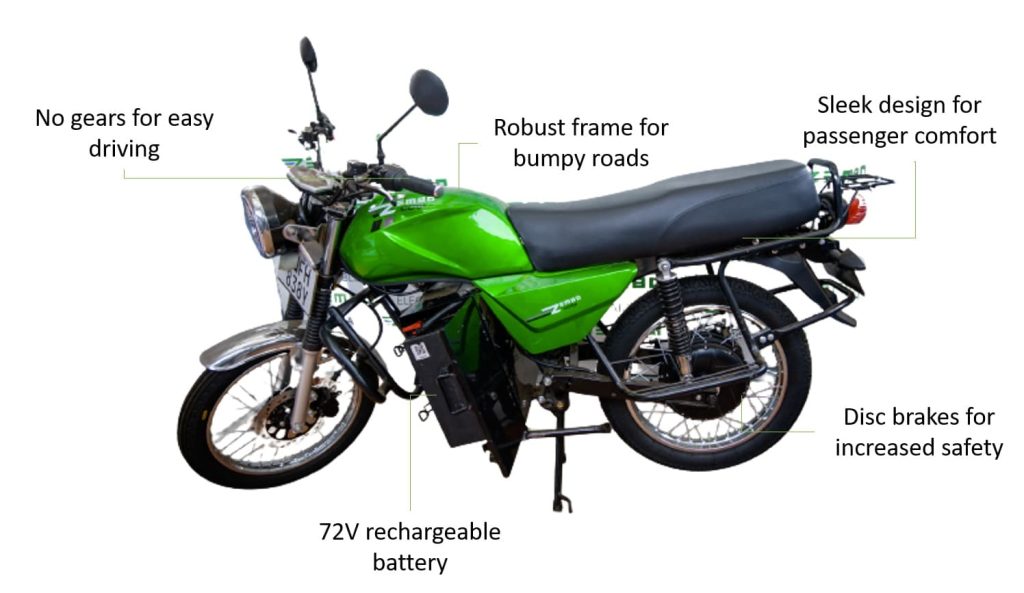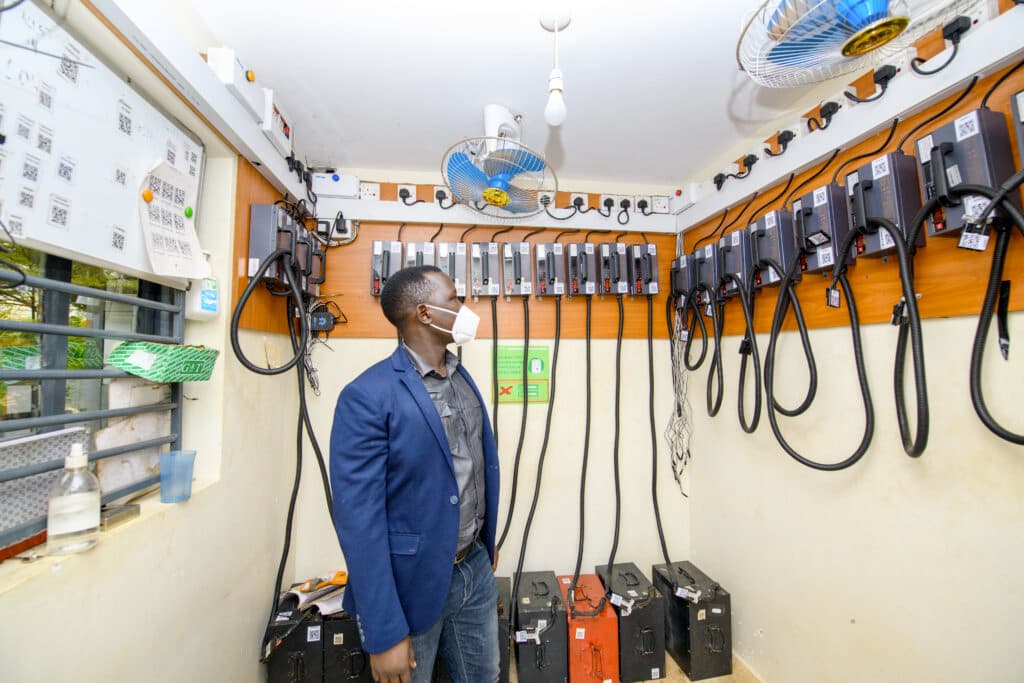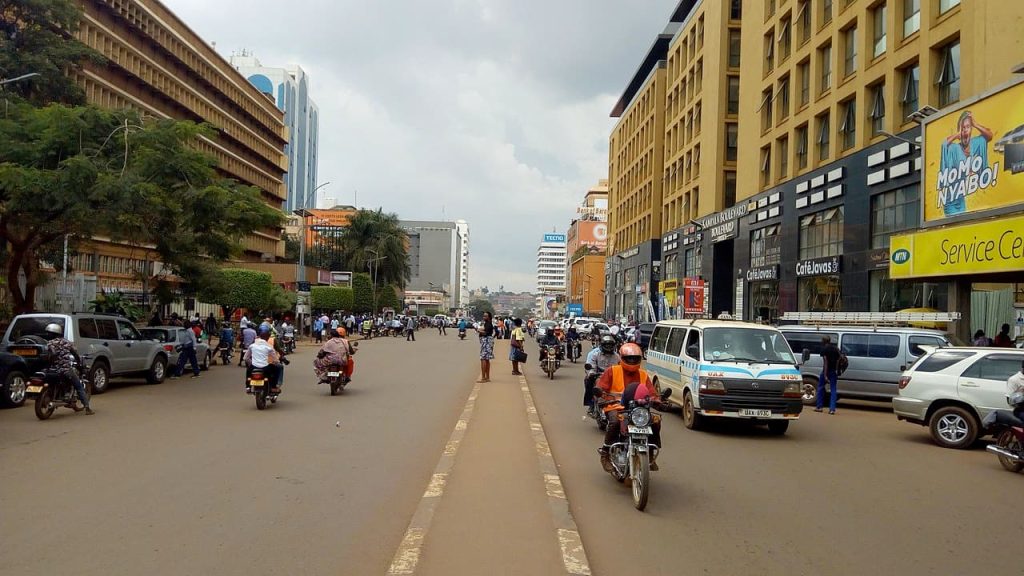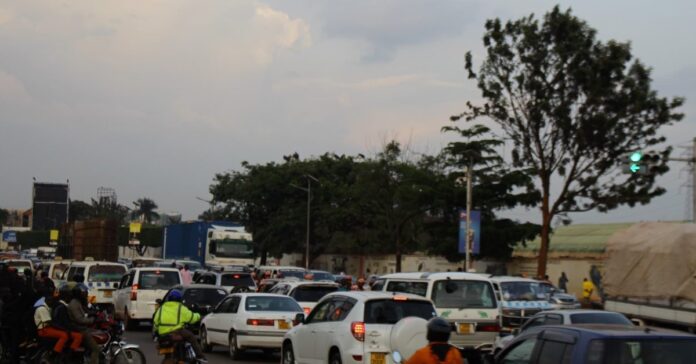We’ve covered plenty of tax incentives and rebates to make electric motorcycles and other EVs more affordable. But this is the first time we’ve seen a country give out EVs for free as a way to replace internal combustion engine (ICE) vehicles.
The title of the first country to make such a bold move goes to Uganda, where President Yoweri Kaguta Museveni made the announcement during his year-end national address.
According to Museveni, the government will provide electric motorcycles as a trade-in for any Ugandans currently riding ICE-powered motorcycles.
The Ugandan government won’t have to fund the large program itself, as news reports quoted the president as attributing the capital to “investors”:
We have agreed with some investors, to take away the petrol ones and give the owners the electric ones. This swap will save motorcycle operators 50% of the cost.
Those investors will reportedly be granted licenses to operate charging and battery swap stations, which would be used to recoup their investment.

The electric motorcycles are domestically-produced Ugandan models that generally retail for around 5 million Ugandan Shillings (approximately US $1,350).
They’re commonly used by boda bodas, which are motorcycle taxis that are popular in much of Africa. Whereas in someplaces you might hail an Uber or Lyft to go meet up with friends, in Uganda, it is common to hop on the back of a motorcycle taxi and be quickly whisked to your destination (though Uber actually also operates a boda boda service in Uganda — go figure).
Many African nations have pushed to electrify these large motorcycle fleets, but Uganda’s announcement marks the single largest program yet designed to replace all ICE-powered motorcycles in a country.
In addition to the obvious environmental benefits, electric motorcycles are likely to help support the independent motorcycle taxi operators with lower operating costs. Ugandan Science and Technology Minister, Dr. Monica Musenero, put the operational cost savings as even higher than the President’s figures:
These bikes are 60% cheaper to operate than the current ones because they don’t take fuel. Charging the motorbike takes a very small fraction. They don’t have a lot of serviceable parts and the operator gets a lot more money. Because they are made here, we are taking care of safety measures and local circumstances. For example, if it is stolen, it will report to us and we will be able to switch it off. If you try to remove parts, it will report. This will enhance security of the motorcycle.

The motorcycles are designed for urban operation and, thus, don’t have very long ranges. A single charge is capable of providing around 70 km (43 miles) of range.
For that reason, the motorcycles rely on a network of charging and battery swap stations. Companies, like Zembo, already operate over a dozen charging and swapping stations in the country’s capital of Kampala.
According to Musenero, additional stations are already going up to reach further out of town.
Three have already been set up along Masaka road in Buwama, Lukaya and Masaka city. The most expensive component of the electric motorcycle is the battery and to this, the rider doesn’t have to own the battery. They will be leasing the batteries. When running low, the rider will go to the next charging station to change it and pay some money to get another one and leave the one which is low at the station.
The model sounds somewhat similar to Gogoro’s well-known battery swapping electric scooters. Riders don’t actually own the battery but, instead, subscribe to Gogoro’s battery swapping plan that allows them to swap at local battery stations.
There are thousands of such battery swap stations in Taiwan, and Gogoro is quickly expanding the model internationally.

Museveni added that other electric vehicles will also be receiving incentives to encourage rapid electrification.
As he explained:
We are working on plans to shift to electric buses, electric cars and electric motorcycles. The shift in transport vehicles is not only in respect of motorcycles. It also involves the buses, cars, mini-buses, pick-ups, etc.
Electrek’s Take
This is an interesting way to create an incentive to replace polluting vehicles with efficient EVs. Instead of incentivizing the end customers with discounts, like we normally see in the West, Uganda is somehow incentivizing the companies that make the motorcycles and operate the battery swap stations.
It’s sort of like the old razor and cartridge model — get the razor handle for free and become a razor cartridge shopper for life. But in this case, it’s sort of a win-win-win, in that Uganda reduces pollution, motorcycle owners reduce their costs, and motorcycle/battery companies get a huge influx of customers to use their battery swapping stations.
I just hope the math works out here because it almost sounds too good to be true.


